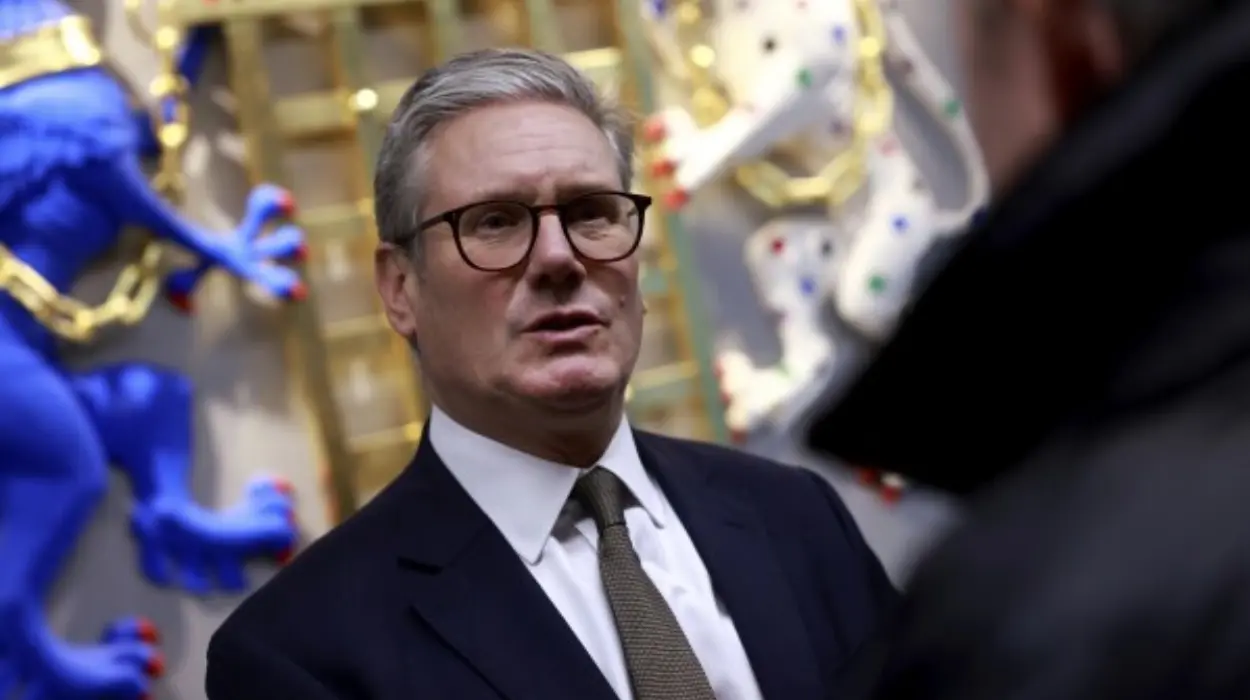UK (Parliament Politics Magazine) – UK Prime Minister Keir Starmer plans to replace Nin Pandit as private secretary, marking the third senior Downing Street exit in less than 12 months.
As reported by The Telegraph, the Prime Minister is expected to remove his third senior aide from his Downing Street team.
Who’s the third senior aide exiting Keir Starmer’s office?
Ninjeri Pandit, a former NHS chief of staff, was appointed the Prime Minister’s principal private secretary in October.
The Labour leader raised concerns over her performance and is considering relocating her to another position in Number 10.
The Prime Minister’s principal private secretary oversees the flow of information and often attends major policy decisions.
How has Keir Starmer’s first year led to multiple aide exits?
Ms Pandit’s exit from Mr Starmer’s senior team follows the departure of Baroness Gray as chief of staff within the first 100 days in office.
Sir Keir’s communications director, Matthew Doyle, resigned in March after facing criticism over Downing Street’s media handling.
The Prime Minister has faced a difficult first year, currently trailing Reform UK by nearly 10 points amid migration issues.
Amid pressure from MPs and the public, Mr Starmer has faced a series of policy reversals on fuel allowances, welfare cuts, and the national grooming gangs inquiry.
What led to Lady Gray leaving Keir Starmer’s team?
Former NHS chief of staff, Ms Pandit, was appointed Prime Minister’s PPS, announced alongside Lady Gray’s departure.
The ex-Whitehall troubleshooter’s exit was presented as her own decision, with a statement saying she had “chosen” to leave after becoming a distraction.
According to several insiders, it was the Prime Minister who asked Lady Gray to step aside, despite her insistence she would stay.
She was offered to serve as the Prime Minister’s “envoy to the regions and nations,” but she declined before joining the Lords in February.
How is Downing Street handling communications after Doyle’s exit?
Matthew Doyle, formerly Tony Blair’s spin doctor, became recognised in Westminster for his personable and avuncular communication style.
He was slammed for failing to guide Sir Keir’s messaging during multiple crises. These included the Southport riots and the “freebies” scandal affecting the Prime Minister and his front bench.
His role has been divided between Steph Driver, Downing Street deputy communications, and James Lyons, a former political journalist.
What strategy will Keir Starmer use ahead of Labour’s Liverpool conference?
Labour aims to counter Nigel Farage’s Reform, questioning its negative view of Britain’s state. The strategy change arrives weeks before Labour’s annual conference in Liverpool this September.
In his first anniversary address, Sir Keir told ministers to view Labour’s record with “pride and achievement.”
A Labour insider said,
“Reform and the Tories talk about Britain being broken and that’s just not what the Prime Minister thinks.”
Labour leader continues to face rising pressure from backbenchers on multiple issues, especially the economy and immigration.
The party’s left-wingers accuse Mr Starmer of following austerity policies. Several party elders want the two-child benefit cap removed.
How is Rachel Reeves planning to tackle Britain’s £50bn fiscal gap?
Labour MPs are pushing Chancellor Rachel Reeves to scrap her self-imposed fiscal rules for more flexibility.
She reshuffled her team, giving pensions minister Torsten Bell greater responsibility for drafting her second Budget in October.
Ms Reeves faces pressure as public finances may hit a £50bn gap while she rushes to prepare the Budget.
The Chancellor plans to impose potential taxes on the wealthy, property owners, and businesses to boost growth since Labour took office.
How are Labour MPs responding to immigration and human rights concerns?
Several Red Wall Labour MPs criticise immigration laws. They argue existing rules fail to meet their intended purpose.
Graham Stringer, a senior Labour backbencher, called last week for Britain to quit the European Convention on Human Rights after a surge in small boat crossings.
What did Luke Tryl say about Nigel Farage’s chances of becoming PM?
Luke Tryl, the executive director of More in Common UK, stated,
“Only 13 per cent of Britons are confident Keir Starmer will remain in post after the next election, while a striking 41 per cent say they simply don’t know what the next elected government will look like.”
He said,
“In fact, the public rate Nigel Farage’s chances of becoming prime minister as highly as those of the current PM, with Reform voters particularly convinced their man will be walking into Downing Street.”
Mr Tryl added,
“It’s yet another sign of the Reform leader’s ability to cast a political shadow far larger than his party’s presence in Westminster.”

